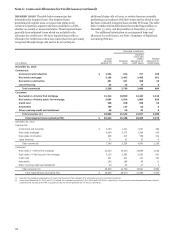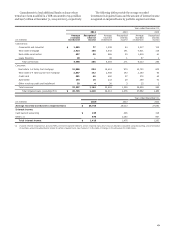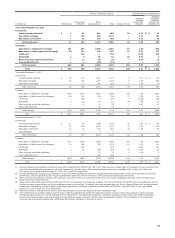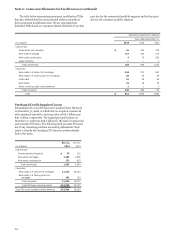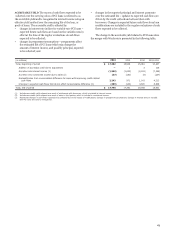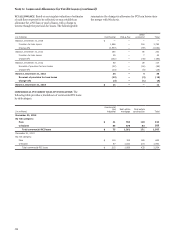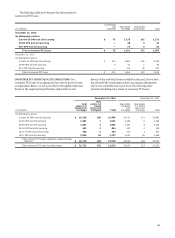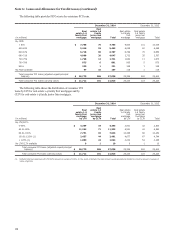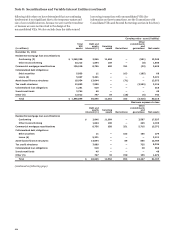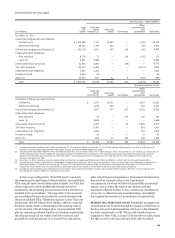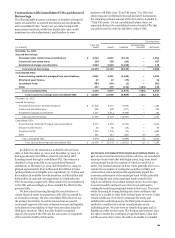Wells Fargo 2014 Annual Report Download - page 182
Download and view the complete annual report
Please find page 182 of the 2014 Wells Fargo annual report below. You can navigate through the pages in the report by either clicking on the pages listed below, or by using the keyword search tool below to find specific information within the annual report.
Note 8: Securitizations and Variable Interest Entities
Involvement with SPEs
In the normal course of business, we enter into various types of
on- and off-balance sheet transactions with special purpose
entities (SPEs), which are corporations, trusts or partnerships
that are established for a limited purpose. Generally, SPEs are
formed in connection with securitization transactions. In a
securitization transaction, assets from our balance sheet are
transferred to an SPE, which then issues to investors various
forms of interests in those assets and may also enter into
derivative transactions. In a securitization transaction, we
typically receive cash and/or other interests in an SPE as
proceeds for the assets we transfer. Also, in certain transactions,
we may retain the right to service the transferred receivables and
to repurchase those receivables from the SPE if the outstanding
balance of the receivables falls to a level where the cost exceeds
the benefits of servicing such receivables. In addition, we may
purchase the right to service loans in an SPE that were
transferred to the SPE by a third party.
In connection with our securitization activities, we have
various forms of ongoing involvement with SPEs, which may
include:
• underwriting securities issued by SPEs and subsequently
making markets in those securities;
• providing liquidity facilities to support short-term
obligations of SPEs issued to third party investors;
• providing credit enhancement on securities issued by SPEs
or market value guarantees of assets held by SPEs through
the use of letters of credit, financial guarantees, credit
default swaps and total return swaps;
• entering into other derivative contracts with SPEs;
• holding senior or subordinated interests in SPEs;
• acting as servicer or investment manager for SPEs; and
• providing administrative or trustee services to SPEs.
SPEs are generally considered variable interest entities
(VIEs). A VIE is an entity that has either a total equity
investment that is insufficient to finance its activities without
additional subordinated financial support or whose equity
investors lack the ability to control the entity’s activities or lack
the ability to receive expected benefits or absorb obligations in a
manner that’s consistent with their investment in the entity. A
VIE is consolidated by its primary beneficiary, the party that has
both the power to direct the activities that most significantly
impact the VIE and a variable interest that could potentially be
significant to the VIE. A variable interest is a contractual,
ownership or other interest that changes with changes in the fair
value of the VIE’s net assets. To determine whether or not a
variable interest we hold could potentially be significant to the
VIE, we consider both qualitative and quantitative factors
regarding the nature, size and form of our involvement with the
VIE. We assess whether or not we are the primary beneficiary of
a VIE on an on-going basis.
We have segregated our involvement with VIEs between
those VIEs which we consolidate, those which we do not
consolidate and those for which we account for the transfers of
financial assets as secured borrowings. Secured borrowings are
transactions involving transfers of our financial assets to third
parties that are accounted for as financings with the assets
pledged as collateral. Accordingly, the transferred assets remain
recognized on our balance sheet. Subsequent tables within this
Note further segregate these transactions by structure type.
180


